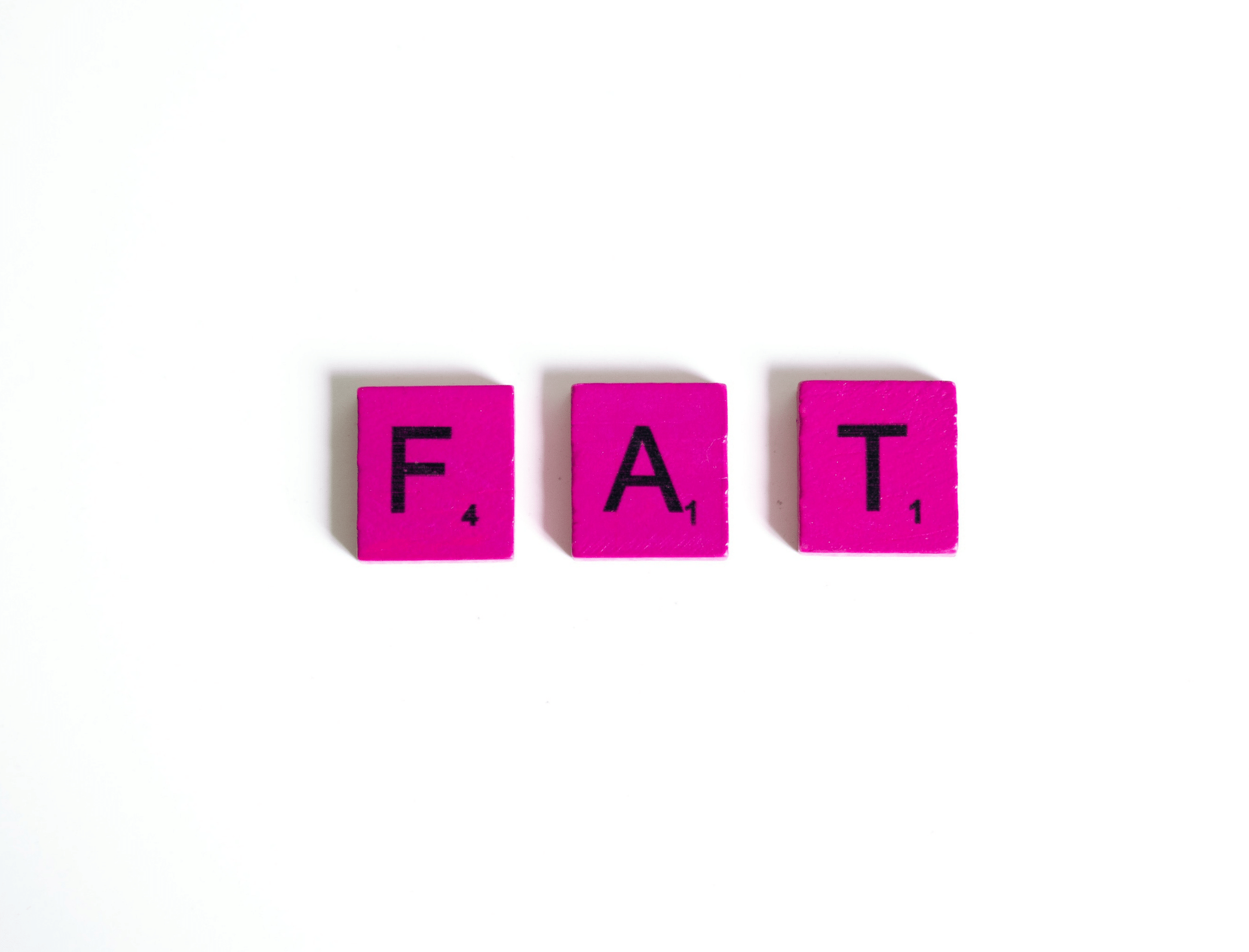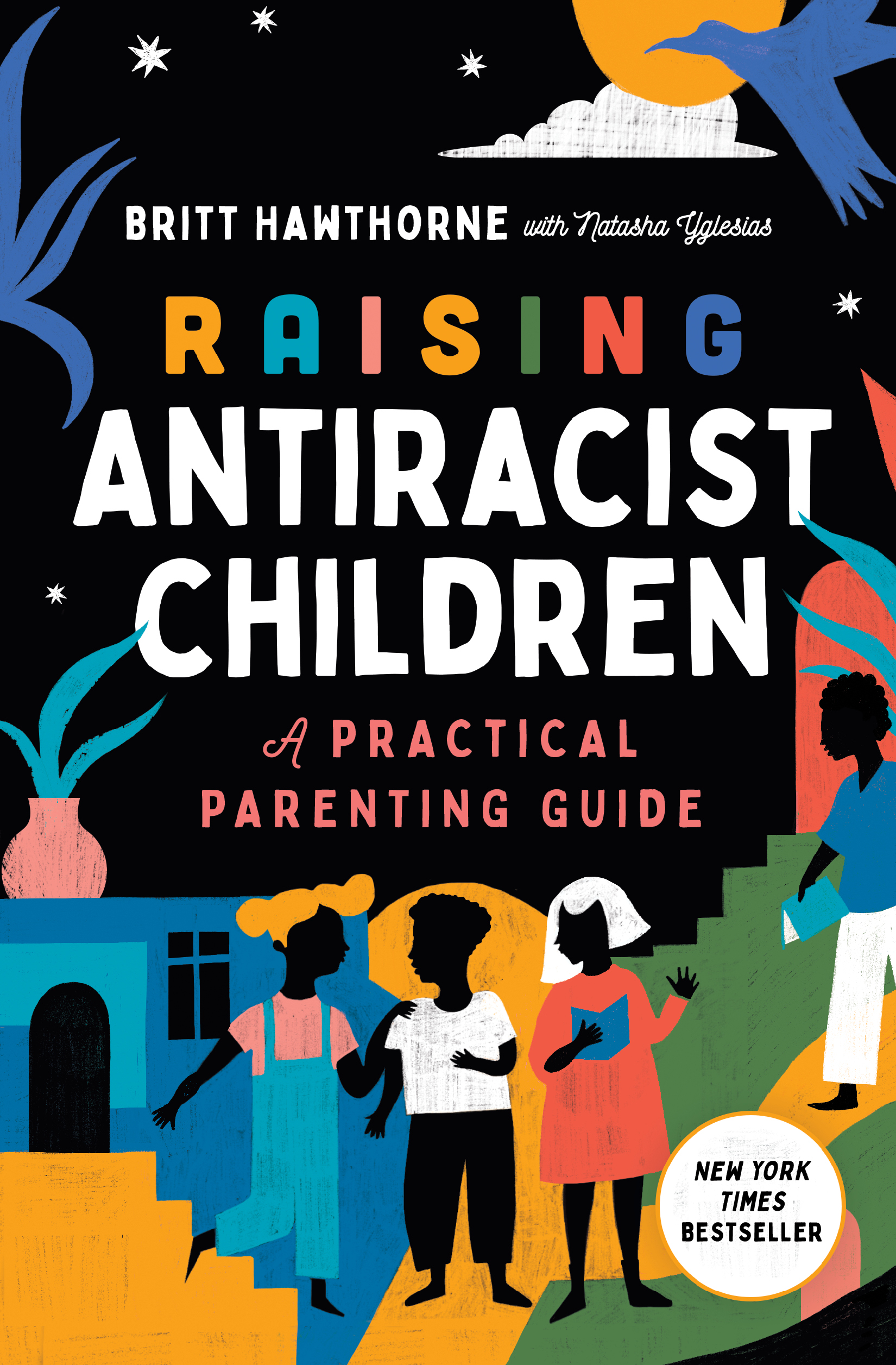It would be hard to find a person who grew up in Western culture who has not at some point struggled with their body image. Our capitalistic society feeds off creating and exploiting our insecurities. We are taught from a young age that if we are not thin, we are not normal, healthy, beautiful, or worthy of love. This implicit and explicit bias against people who are deemed overweight is known widely as fatphobia or anti-fatness. It is rooted in racism, classism, misogyny, and other forms of oppression. To fight it, we need to understand how these systems of oppression are linked. Let’s begin unpacking anti-fatness: what it is, where it comes from, and what we can do to fight it.
What Is Anti-Fatness?
Anti-fatness is a bias against people who do not fit the “thin” and “healthy” standard set by mainstream media and the multi-billion dollar diet, fitness, and beauty industries—all of which profit off of us thinking we aren’t good enough.
Being fat is seen as unequivocally unhealthy, morally wrong, and a result of laziness. Fatness is deemed “bad,” undesirable, and something that should be avoided at all costs.
We are taught to hate our bodies and shame the bodies of our peers all in the name of a “health” standard that doesn’t exist the same for everyone.
The truth is, health cannot be determined by looking at someone. A “fat” person can be healthy, just as a “thin” person can. More often than not, women sacrifice their health to get thin, starting dangerous diets and developing eating disorders.
In addition, telling people that their bodies are wrong has negative psychological effects including higher rates of depression, low-self esteem, and psychological distress. Fatphobia has also been linked to worsened health outcomes. One study shows how weight discrimination itself (not body weight) is “associated with risk for arteriosclerosis, diabetes, high cholesterol, myocardial infarction, minor heart conditions.”
But even if someone is struggling with health issues related to obesity, that does not give anyone the right to belittle, bully, shame, or discriminate against them. Health is a deeply personal equation; it is not the stranger’s responsibility to assume someone is in poor health and give unsolicited and harmful advice (i.e., the practice of paternalism).
So, where does this anti-fatness come from, and why is it still a pervasive issue?
Where Anti-Fatness Comes From
Note to the reader: Anti-fat bias has more sources and influences than we can discuss in this article. In this section, we will be discussing its links to slavery and racism. Unexplained here are its links to classism, misogyny, capitalism, and media. This is a heavy, complex topic that we only begin to unpack here.
The Racial Origins of Anti-Fatness
In Fearing the Black Body: The Racial Origins of Fat Phobia by sociologist Sabrina Strings, Strings walks through the entangled relationship between anti-fatness and anti-blackness. Strings explains how as the slave trade grew in the 18th century, there was a shift in expectations for how different races should look. French philosophers began to write about how Western European white people should strive to be thin to demonstrate their self-control and racial superiority.
In an interview, Strings states: “They decided to articulate new aspects of racial identity, and so eating and body size became two of the characteristics … used to suggest that these are people who do not deserve freedom.”
Strings’ use of the term “deserve” is important here. It helps to explain how the roots of fatness were linked to immortality. Being fat exhibited a moral failure and thus, inferiority and a license to be enslaved.
The Body Mass Index (BMI)
As with other articulations of racism, there are structural supports in our society that continue to uphold racist beliefs. One example is the use of the body mass index (BMI) to determine who is overweight and who is healthy. (Thanks to Jessamyn Stanley for this compelling Instagram post on the BMI.)
The BMI was invented by academic Adolphe Quetelet—note that he was not a physician—in the 1830s. This was during a time of lots of racist pseudosciences, such as the declarations that people of the global majority were a different species from white people. His formula was originally based on the measurements of white Western Europeans from France and Scotland, and his BMI calculations were later used as measurements for eugenics.
But if the BMI, the instrument we use to determine who is “fat” and who is not, is built on a white standard, how does this impact Black people and people of the global majority?
In comparison to white people, Black people tend to have higher weights. This is due to many factors, including socioeconomic disparities, genes, diet, and discrimination. But generally speaking, muscle mass is highest in African Americans which can be misconstrued as fatness using the BMI scale.
As a result of the use of the BMI, healthy Black people are more likely to be deemed “overweight” even if they are healthy, eating a balanced nutritional diet, and exercising regularly. The BMI, as a result, tells Black people that their bodies are inherently unhealthy when compared to the bodies of white people. This all comes at a higher cost. According to Hilary George-Parkin “being fat in America doesn’t come cheap, and that’s even before you factor in the issue of weight bias in the workplace, which studies have shown tends to impact women’s careers in particular. Researchers at Vanderbilt found that as women become heavier, they’re more likely to work in lower-paying, physically demanding jobs (home health care, food preparation, childcare) rather than higher-paying, customer-facing positions, and tend to earn less than “average”-size women and all men in either scenario.”
White Body Supremacy
The BMI is just one example of how the white standard oppresses People of the Global Majority. The term “white body supremacy” was coined by Resmaa Menakem to describe the practice of seeing the white body as a standard that is used to determine everyone’s worth.
According to Resmaa Menakem, “White-body supremacy doesn’t just live in our thinking brains. It lives and breathes in our bodies. As a result, we will never outgrow white-body supremacy just through discussion, training, or anything else that’s cognitive. Instead, we need to look to the body and to the embodied experience of trauma.”
What We Can Do to Fight Anti-Fatness
These kinds of biases can’t be undone overnight, but there is work we can collectively do to fight anti-fatness and its interconnectedness with anti-blackness.
Modify Our Language and Self Talk
Here are some small tweaks we can all make that can promote body positivity instead of anti-fatness in our daily language.
- Instead of “Do these jeans make me look fat?” → “How do these jeans make me feel? ”
- Instead of “No, you don’t look fat in those jeans.” → “You look like you in those jeans.”
- Instead of “I ate like a cow this week” → “I did not nourish my body this week.”
- Instead of “I have to work out or I’m going to get fat” → “I want to workout because it is good for my physical and mental health.”
- Instead of “Oh my god, I’m so ugly in this photo.” → “Next time, I’ll get better lighting that catches my beauty.”
Challenge Fatphobic Thoughts
Other fatphobic languages may never leave our mouths, but they can still be harmful and contribute to the way anti-fatness can grow within us. If you’re struggling with fatphobic thoughts, your first step is to label the thoughts as anti-fat and wrong. I find it helpful to repeat a few grounding statements:
- “Weight fluctuates over time. It’s normal and perfectly fine.”
- “Is this my problem or society’s problem?”
- “I know I’m healthy because… I’m sleeping well. I’m eating nourishing foods. I’m moving my body.”
If you notice someone who “looks” fat or obese, do not jump to any conclusion about their health or self-control. You are not their medical professional. Notice if you make assumptions about their life, and remind yourself that you do not know this person, their lifestyle choices, life circumstances, journey, etc.
Remember Who Profits From Your Insecurities
“In a society that profits from your self-doubt, liking yourself is a rebellious act” Caroline Caldwell
Pro tip: It’s not you. Remember that you are enough right now in this very moment. You do not need to buy an expensive workout membership, sign up for a subscription weight loss program, or buy contour makeup to be worthy. Consumerism tries to convince you that you need to buy things to make up for your deficiencies, but you don’t have any deficiencies. You are beautiful!
Love Our Bodies
One of the best ways to unlearn anti-fatness is to love yourself and love your body. You can begin small. Start with a body part that you love already. Either journal about why you love it or say it out loud. Practice telling your body that you love it, fat, wrinkles, stretch marks, and all.
Keep Learning
This article only scratches the surface of this highly complex topic. To continue our learning, we can explore these resources provided by social justice educator RW Alves:
Books
- Body Respect: What Conventional Health Books Get Wrong, Leave Out, and Just Plain Fail to Understand about Weight by Lindo Bacon and Lucy Aphramor
- The Body is Not An Apology: The Power of Radical Self Love by Sonya Renee Taylor
- Embody: Learning to Love Your Unique Body (and Quiet that Critical Voice!) by Connie Sobczak
- What’s Wrong with Fat? by Abigail C. Saguy
Articles
- “Normal” Bodies Don’t Exist: Celebrating Your Body in the Face of Fatphobia by Gillian Brown
- 11 Reasons Your ‘Concern’ for Fat People’s Health Isn’t Helping Anyone by Melissa A. Fabello and Dr. Lindo Bacon
- Unlearning How To Be Thin: Weight Is Not An Indicator of Health by Lizabeth Wesely-Casella
- 5 Ways People with Thin Privilege Can Fight Body Terrorism by Julie Feng
- How to Talk About Body Image Issues When You’re Not Fat by Dawy Rkasnuam
Remember, antibias and antiracism require practice. White supremacy pervades all aspects of our lives and the way we see the world; change doesn’t happen overnight. To dismantle racism, show up with curiosity and try, try, and try again. We’re in this together—and I’m rooting for you. If you want more resources, explore workshops and guidance for parents and educators.





